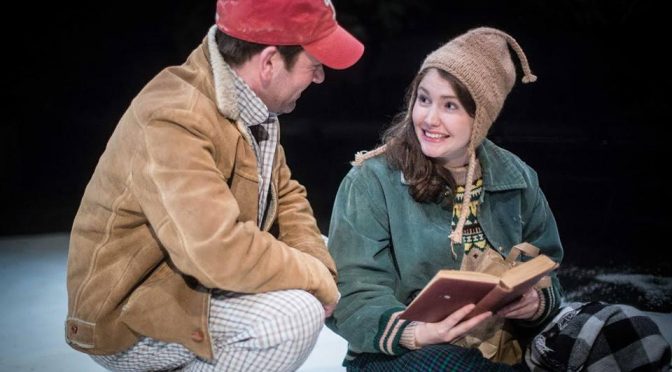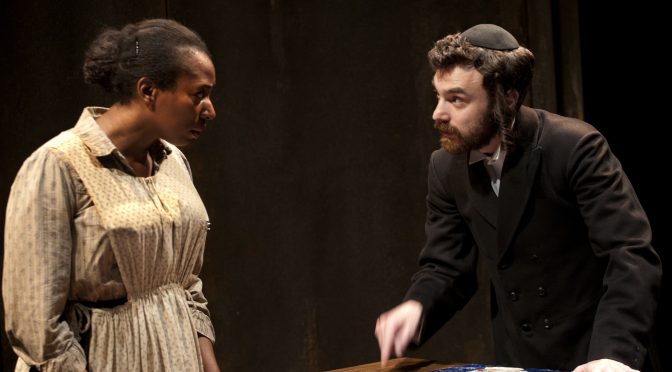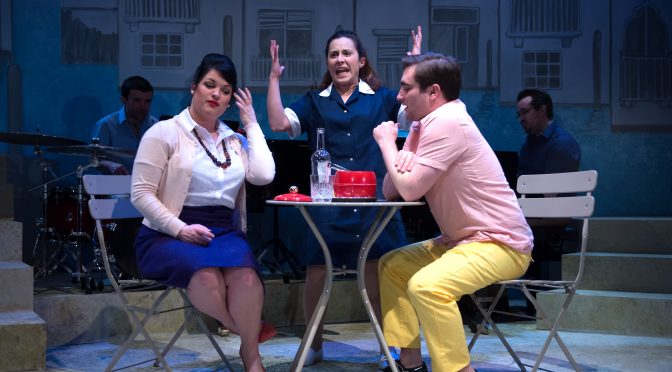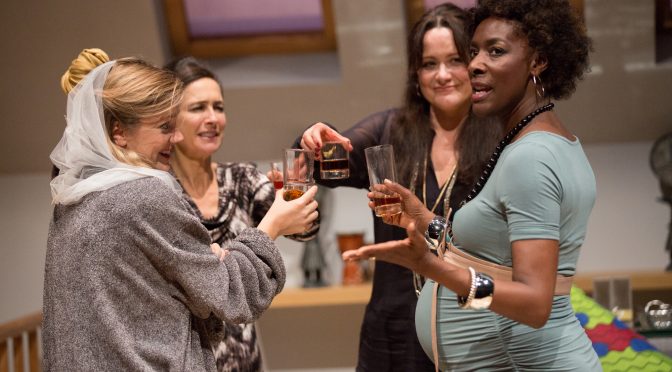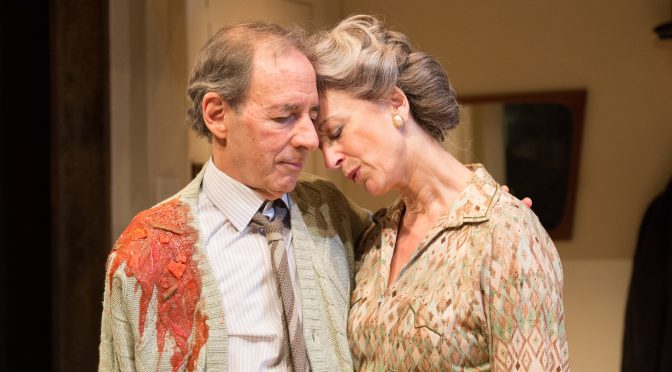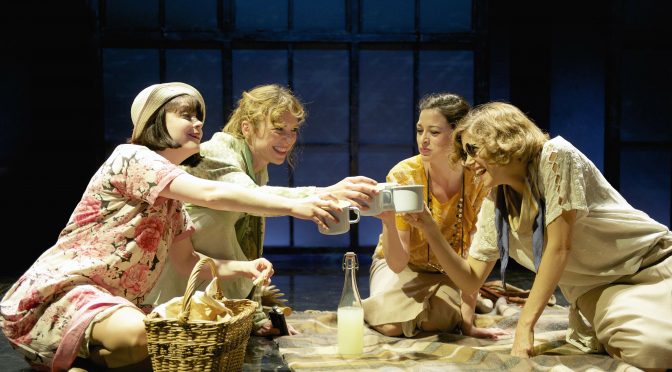Widely performed in its native United States, John Cariani’s Almost, Maine has received its first UK production at Park Theatre. A series of scenes, with different couples facing the exigencies and ecstasies of love, it’s about ordinary people in a small American town facing up to romantic problems. The potential for sentimentality is notable, so director Simon Evans uses his talented cast to make the proceedings clear rather than cute.

The little stories might be divided into two types. There are those that deal with recognisable situations: an awkward meeting between ex-partners the night before one of them marries, where Susan Stanley conveys her character’s nervous energy perfectly, or the courtship of a tomboyish girl, which gives Lucy Eaton a chance to shine. Then there are scenes with a more surreal edge. Melanie Heslop is wonderfully cookie as a woman who carries her broken heart around in a paper bag. Hamish Clark is splendid in a scene where his character’s long-term girlfriend brings all the love she gave him back – in mail sacks. Ian Keir Attard and Patrick Walshe McBride have a great moment playing friends who literally fall in love, incapable of standing upright, made acrobatic by the truth dawning upon them.
It might frustrate you that Almost, Maine is a collection of sketches. There are unifying factors – characters are mentioned in other stories, random kisses are common and the weather is always cold – but these feel contrived. Also, it’s a little difficult to place the show in time, which bothered me. And though its hardly Cariani’s fault his effort to inject ‘magical moments’ might remind you too much of a chocolate box. I preferred the more bizarre scenes but it’s safe to say there’s something quality here for everyone – what’s your favourite favourite?
Until 17 January 2015

